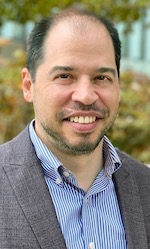Daily Business Report: Thursday, Oct. 21, 2021
Charting the Continued Rise of Remote Jobs
Visual Capitalist
When the pandemic first took hold in 2020, and many workplaces around the world closed their doors, a grand experiment in work-from-home began.
Today, well over a year after the first lockdown measures were put in place, there are still lingering questions about whether remote work would now become a commonplace option, or whether things would generally return to the status quo in offices around the world.
New data from LinkedIn’s Workforce Report shows that remote work may be here to stay, and could even become the norm in a few key industries.
Broadly speaking, 12 percent of all Canadian paid job postings on LinkedIn offered remote work in September 2021. Prior to the pandemic, that number sat at just 1.3 percent.
While this data was specific to Canada, the country’s similarity to the U.S. means that these trends are likely being seen across the border as well.

in California on Aug. 22, 2021. AP Photo/Ethan Swope
Gov.Newsom declares drought
emergency across California
Gov. Gavin Newsom Tuesday declared a drought emergency for the entire state of California, as conservation efforts continue to fall far short of state targets.
Newsom also authorized California’s water regulators to ban wasteful water use, such as spraying down public sidewalks, and directed his Office of Emergency Services to fund drinking water as needed. But he stopped short of issuing any statewide conservation mandates.
“As the western U.S. faces a potential third year of drought, it’s critical that Californians across the state redouble our efforts to save water in every way possible,” Newsom said in a statement.
The announcement extends drought emergencies, already declared in 50 counties, to the eight remaining counties where conditions had thus far not been deemed severe enough: Los Angeles, Orange, Riverside, San Bernardino, San Diego, Imperial, San Francisco and Ventura.
Longtim labor leader leaves after discovery
of ‘unintended compensation’
By Andrew Keats | Voice of San Diego
Tom Lemmon, the longtime leader of the San Diego Building and Construction Trades Council, announced his retirement Thursday, but that announcement did not mention the circumstances that surrounded his departure.
A document obtained by Voice of San Diego indicates he resigned as part of an agreement with leaders of Building Trades, an umbrella group of construction unions, after the organization determined he had received between $100,000 and $200,000, and potentially more, in payments to which he was not entitled.
A Building Trades board member, in a statement to Voice of San Diego, said the payments stemmed from an inadvertent wage calculation error in 2017, and that Lemmon’s retirement decision was made independent of the discovery.
The document, dated Oct. 13, refers to the payments as “unintended compensation” that Lemmon received over the last five years, “perhaps exceeding an average of” $20,000 per year, “but likely not exceeding” about $40,000 per year.
San Diego research centers receive $15 million to
train next generation of regenerative medicine scientists
Three San Diego research institutions have been awarded nearly $15 million from the California Institute of Regenerative Medicine (CIRM) to train the next generation of scientists in regenerative medicine, a field of research that holds great promise for generating transformative medicines.
Scripps Research, University of California San Diego, and Sanford Burnham Prebys each received grants of around $5 million from CIRM to support the training of graduate students, postdoctoral trainees, and clinical trainees.
Peter Schultz, president and CEO of Scripps Research, will head the Scripps Research program which received $4,931,353 to train scientists in disciplines and techniques central to stem cell biology and regenerative medicine.
University of California San Diego received $4,992,446 to train the next generation of stem cell biologists, driving advances ranging from the unraveling of fundamental mechanisms of cell function to the development of new therapies.
Sanford Burnham Prebys received $4,931,353 to launch a multidisciplinary stem cell training program
Finance leader Richard Stryjewski appointed
CFO at La Jolla institute for Immunology
Richard Stryjewski, a financial leader with deep expertise in the non-profit research sector, has been appointed as chief financial officer at La Jolla Institute for Immunology. In his role, he will lead financial planning and operations to advance essential growth and ensure the Institute’s long-term financial security.
An active California Certified Public Accountant, Stryjewski started his career at Ernst & Young LLP, and subsequently held various accounting and finance positions with multiple large organizations including PacifiCare Health Systems and the Walt Disney Company.
Most recently, he spent 12 years at Scripps Research, where he oversaw general accounting, financial reporting, budget, treasury, risk management, compliance, endowment accounting, and donor financial stewardship.
“Finance touches every aspect of a research organization and my greatest satisfaction comes from knowing I can play a role in advancing the goals of the Institute,” said Stryjewski.
“LJI is one of the shining stars on the mesa, and I look forward to working with the Institute’s leaders to support the pioneering science that’s happening here every day.”
Southwestern College receives $600,000 endowment
from longtime teacher Sue Crittendon
Southwestern College received an endowment gift recently of more than $600,000 from Sue Crittendon, who taught elementary school in the National School District for 34 years. She left the endowment before passing away. It is the largest gift in the school’s 60-year history.
Crittendon was a retiree of the National School District after more than three decades of teaching in the third, fourth and fifth grade levels. She established the endowed scholarship fund in order to inspire students from National City.
These $500 scholarships will partly fund the education of 30 students of Sweetwater Union High School District each semester, with emphasis on graduates from Sweetwater High School who are enrolled at Southwestern College. Disbursement of these funds will be managed by the Southwestern College Foundation, which has been entrusted with managing Crittendon’s scholarship endowment.
San Diego Community College District
to forgive $3.9 million in student debt
The San Diego Community College District (SDCCD) is forgiving $3.9 million in student debt for more than 11,454 students at San Diego City, Mesa, and Miramar colleges using federal pandemic relief funds.
Students who were enrolled in spring through summer 2021 will have all their outstanding tuition and related enrollment fees forgiven. Holds for non-payment will be removed and students will be eligible to enroll for the January intersession and spring 2022 semester. Open enrollment begins on Dec. 6.
In addition to forgiving the $3.9 million in student debt, City, Mesa, Miramar, and the College of Continuing Education have awarded over $13 million of direct aid to students to support their education.
Researchers determine optimum pressure to
improve performance of lithium metal batteries
A team of materials scientists and chemists has determined the proper stack pressure that lithium metal batteries, or LMBs, need to be subjected to during battery operation in order to produce optimal performance.
The team, which includes researchers from the University of California San Diego, Michigan State University, Idaho National Laboratory and the General Motors Research and Development Center, presents their findings in the Oct. 18 issue of Nature Energy.
Using lithium metal to replace the graphite for battery anodes is the ultimate goal for part of the battery R&D field; these lithium-metal batteries (LMBs) have the potential to double the capacity of today’s best lithium-ion technologies. For example, lithium metal battery-powered electric vehicles would have twice the range of lithium-ion battery-powered vehicles, for the same battery weight.
County Probation to launch new program for
longer-term in-custody youth and young adults
The County Board of Supervisors voted Tuesday to begin the implementation of the Youth Development Academy at the East Mesa Juvenile Detention Facility by 2023.
The action is in response to Senate Bill 823, which transfers responsibility from the state to county probation departments for longer-term custody of youth up to age 25.
As part of the plan, the San Diego County Probation Department, County Behavioral Health Services, and a contractor will provide more intensive rehabilitative, longer-term services for in-custody youth who have committed the most serious and violent offenses.
Cat bacteria treats mouse skin infection,
may help you and your pets as well
Researchers at University of California San Diego School of Medicine used bacteria found on healthy cats to successfully treat a skin infection on mice. These bacteria may serve as the basis for new therapeutics against severe skin infections in humans, dogs and cats.
The study, published in eLife on October 19, 2021, was led by Richard L. Gallo, M.D., professor and chair of the Department of Dermatology at UC San Diego School of Medicine, whose team specializes in using bacteria and their products to treat illnesses — an approach known as “bacteriotherapy.”
Skin is colonized by hundreds of bacterial species that play important roles in skin health, immunity and fighting infection. All species need to maintain a diverse balance of healthy skin bacteria to fight potential pathogens.
U.S. Marine Corps acquires 2 MQ-9A
Reapers from General Atomics
General Atomics Aeronautical Systems Inc. has completed the transfer of two MQ-9A Reaper Block 5 Unmanned Aircraft Systems (UAS) to the U.S. Marine Corps on Oct. 15. The two aircraft have been operated by the USMC since 2018 under a Company Owned/Company Operated (COCO) lease agreement.
The Reapers represent the first increment of the Marine Air-Ground Task Force Unmanned Aircraft System Expeditionary Program of Record. The transfer of aircraft includes two Ground Control Stations and associated support equipment.
The two COCO MQ-9As, using remote split operations from Marine Corps Air Station Yuma, have been in operation for the USMC as part of a lease agreement between General Atomics and Naval Air Systems Command, accruing over 12,000 flight hours supporting operations in the Middle East.





